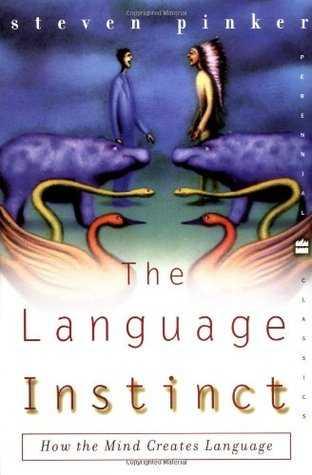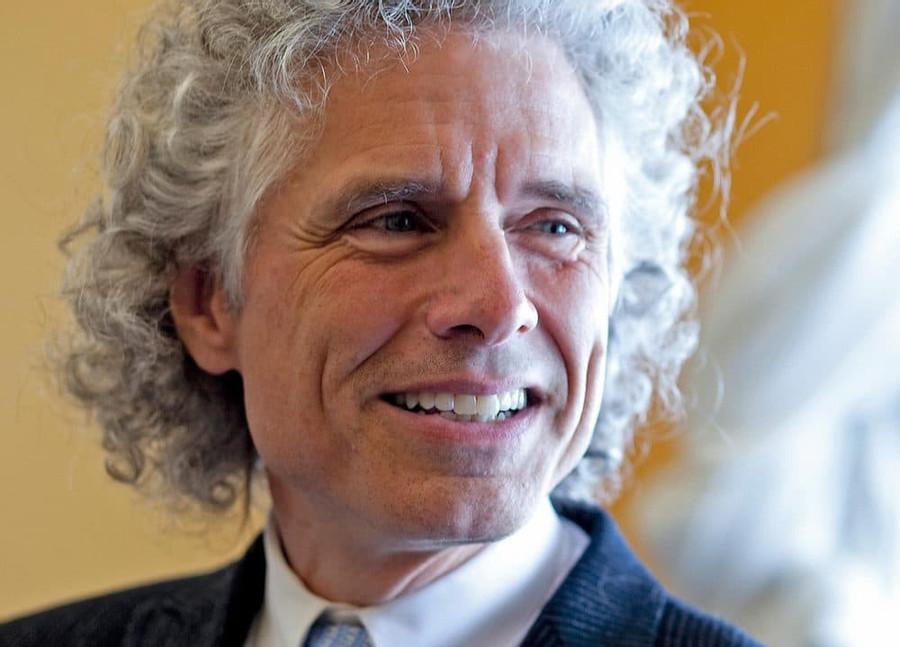Denise Fox's Key Ideas from The Language Instinct
by Steven Pinker
Ideas, facts & insights covering these topics:
12 ideas
·2.74K reads
20
Explore the World's Best Ideas
Join today and uncover 100+ curated journeys from 50+ topics. Unlock access to our mobile app with extensive features.
A Natural At Learning Languages
Humans have an innate language instinct, which allows them to tackle communication on a whole other level.
- Since children learn grammar without studying it, they must have an innate capability to understand it.
- There are two central principles behind all languages, which make them learnable.
- You don’t have to worry about correct grammar so much, as its rules are only one part of using language correctly.
26
420 reads
Defining Language
- Language is the biological adaptation to communicate.
- There have been anthropological studies of tribes that had no contact with the larger world until the 1920s. Among those tribes, language was acquired seamlessly, without specific instruction.
- The human capacity for language is termed by the author as “Mentalese.”
- Humans acquired language through their biology. This innate possession of language a “Universal Grammar.”
- This proclamation ran counter to the social science theories of the time, which contended that language had to be deliberately taught by adults.
27
321 reads
Early Instinct
Since children learn languages as early as 18 months old, but can only learn from observing adults that do it the right way, they have no way of actively telling what’s right from wrong – they’re not studying languages, they just absorb them.
Yet they still apply the right rules at the right time. For example, even deaf children apply the correct grammar, just by learning sign language from their parents.
24
269 reads
The Window To Learn A Language
Children have a “window” for maximum language learning, while adults tend to have trouble learning a second language.
This window must exist because children around four years old learn grammar and vocabulary so quickly; this exponential learning cannot be explained by adult intervention or guidance. Language learning can be encouraged, and children must be in a social environment to absorb language, but the exact words they remember and the grammar they display probably has a biological basis.
25
240 reads
The Two Core Principles
All languages are based on the same two core principles.
How come we can talk so effortlessly to one another? What is it about language that makes it so easy to communicate with it? There are two forces at play here:
- The arbitrariness of the sign.
- Our infinite use of finite media.
24
237 reads
Signs Are Arbitrary
The form words take doesn’t have a direct relation to their meaning.
For example the word “cat” doesn’t sound like a cat. The sound cats make is “meow” and they’re silent when they walk, whereas “cat” is a pretty strong, snappy, short and loud word.
This is a good thing, because it keeps us from trying to decipher what the word “cat” means by thinking about the way it sounds and instead lets us jump instantly to the result, because we’ve paired the word with the image through generations of rote learning instead.
25
202 reads
Infinite Use Of Finite Media
This principle allows us to express anything and everything, because even though the number of words in any given language is limited, the number of combinations of words isn’t. Since we use the rules of grammar to create our own sentences, we’re not limited in how much we can express, which makes it easier to get your point across.
24
187 reads
Grammar Is Getting Worse, But It's Okay
Grammar is a crucial part of language, and it pays to know it well. However, while you’d be punished horribly in school in the 1920s for bad grammar, today it’s not such a big deal, mainly because grammar rules are only one type of rules that determine how well you use language.
Grammar rules are prescriptive, which means they tell us how we’re supposed to talk or write. More and more though, scientists are concerned with descriptive rules, which describe how we actually talk.
26
176 reads
The Right Grammar Is Subjective
You can be very much descriptively correct with your grammar, while being wrong in a prescriptive sense, just like a driver can follow the rules of physics in his car while breaking the laws of the country he’s driving in. Correct grammar is very much a relative thing, so don’t stress too much about it!
26
163 reads
Our Brains Are Hard-Wired For Learning Language
The theory that language is an instinct has opened up the possibility that humans have had access to language learning for about 2.5 million years.
There are specific genes and regions of the brain that develop to allow the individual to practice language.
While popular media accounts claim that chimpanzees can learn American Sign Language, most data suggest that chimpanzees are not mentally wired to acquire language. They lack the language instinct that humans possess.
26
160 reads
The audible signals people can produce are not a series of crisp beeps like on a touch-tone phone. Speech is a river of breath, bent into hisses and hums by the soft flesh of the mouth and throat.
STEVEN PINKER
26
173 reads
Humans are so innately hardwired for language that they can no more suppress their ability to learn and use language than they can suppress the instinct to pull a hand back from a hot surface.
STEVEN PINKER
26
194 reads
IDEAS CURATED BY
CURATOR'S NOTE
We are born with an innate capability to understand languages.
“
Curious about different takes? Check out our The Language Instinct Summary book page to explore multiple unique summaries written by Deepstash users.
Denise Fox's ideas are part of this journey:
Learn more about books with this collection
How to showcase your skills and experience
How to answer common interview questions
How to make a good first impression
Related collections
Different Perspectives Curated by Others from The Language Instinct
Curious about different takes? Check out our book page to explore multiple unique summaries written by Deepstash curators:
17 ideas
Antonio Gallo's Key Ideas from The Language Instinct
Steven Pinker
Discover Key Ideas from Books on Similar Topics
6 ideas
Annie Duke on Poker, Probabilities, and How We Make Decisions
Conversations with Tyler
19 ideas
What Is ChatGPT Doing
Stephen Wolfram
6 ideas
Why Buddhism is True
Robert Wright
Read & Learn
20x Faster
without
deepstash
with
deepstash
with
deepstash
Personalized microlearning
—
100+ Learning Journeys
—
Access to 200,000+ ideas
—
Access to the mobile app
—
Unlimited idea saving
—
—
Unlimited history
—
—
Unlimited listening to ideas
—
—
Downloading & offline access
—
—
Supercharge your mind with one idea per day
Enter your email and spend 1 minute every day to learn something new.
I agree to receive email updates












